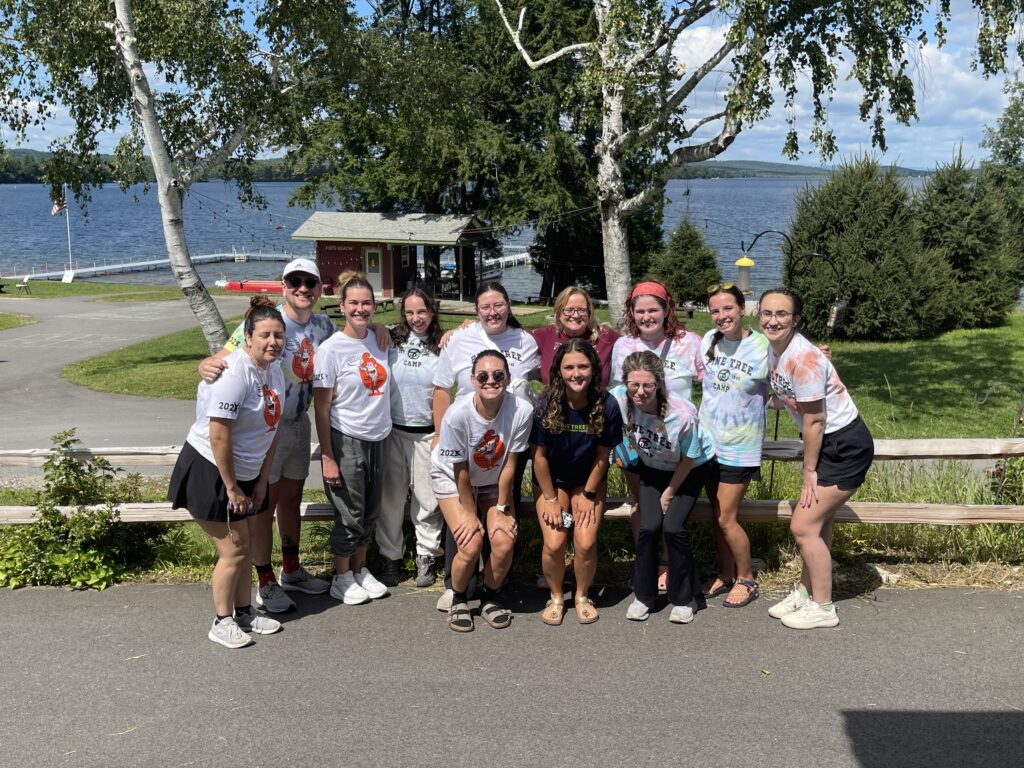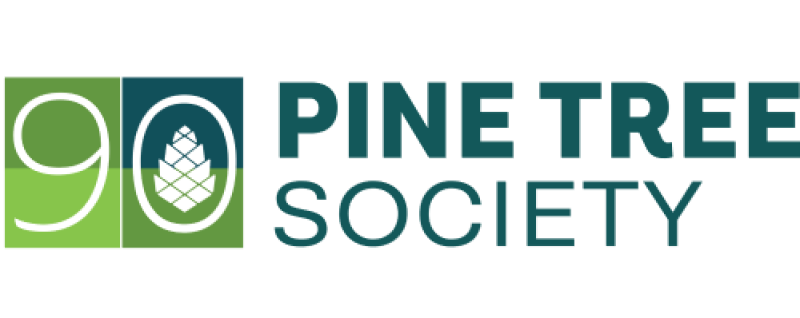 This summer, Linda Bonnar welcomed Speech-Language Pathology students from the University of Vermont (UVM) and Emerson College to Pine Tree Camp to experience firsthand as campers and their families learned how to use their alternative and augmentative communication (AAC) devices within Pine Tree Camp’s natural and recreational setting.
This summer, Linda Bonnar welcomed Speech-Language Pathology students from the University of Vermont (UVM) and Emerson College to Pine Tree Camp to experience firsthand as campers and their families learned how to use their alternative and augmentative communication (AAC) devices within Pine Tree Camp’s natural and recreational setting.
Linda is the Director of Communication Pathways at Pine Tree Society.
“The goal was to provide the students hands-on clinical experience as they complete the transition from student learners to professional speech pathologists,” she said.
The students had the unique opportunity to interact with campers as well as their families; which allowed campers learning how to use their AAC devices to gain a lot of momentum in their communication skills in a short amount of time.
“I don’t think we’ll ever have a clinical experience like this again,” is how one UVM student put it.
She was assigned to a camper who was reluctant to take part in activities. She agreed, however, to engage in outdoor bowling. This favorite, and highly motivating activity, resulted in gaining her buy-in and opened up her confidence to try more of the camp activities. More importantly, it encouraged her to use her device even more and to expand how she expressed what she wanted. At first, she said “Again.” That grew to, “Play again,” and finally to, “I want to play again.”
Her mother had never seen her do that before; showing how, in a short period of time, working together with campers and their families, there was tremendous growth.
“She just said that by herself. That was so amazing,” her mother said.
Sarah is a student at Emerson College and spent time with a camper and their family restructuring the camper’s device from being just set up specifically for school to allowing for more conversational language.
“We spent a lot of time reprogramming his device to be more logical,” Sarah recalled. “It’s now like a tree with everything connected so he can communicate about anything at home, school or out in the community. Through having easy access to conversational language, he realized ‘I can say something, and it changes what’s happening.’ Being able to communicate gave him autonomy.”
Through learning how to help others, the students gained tremendous skills.
“My goal was to empower students who are coming into the field to learn more about assistive technology as they embark on their own journeys as speech-language pathologists,” concluded Linda.
To learn more about Pine Tree Society’s Speech-Language and Assistive Technology Services for children, follow this link or contact us at 207-386-5930.

